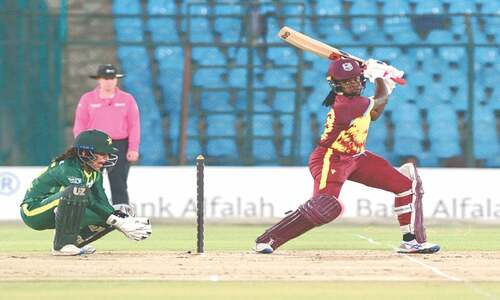A defiant Pakistan Cricket Board (PCB) chairman Zaka Ashraf vowed to continue its opposition to the “Big Three”, claiming Pakistan would not waver from its principal stance on the proposed revamp of the International Cricket Council (ICC), DawnNews reported.
Speaking to reporters after PCB’s Governing Board Meeting on Monday, Ashraf said a decision on the proposals will be taken after ICC’s Executive Board meet on February 8, but reiterated that “Pakistan’s interests would not be compromised.” The chairman also expressed a desire to meet with Prime Minister Nawaz Sharif, who is also the patron-in-chief of the PCB, over the issue.
Pakistan, along with Sri Lanka and South Africa, sought time to consider the radical changes to the ICC proposed by the rich boards of India, England and Australia which were discussed in detail in a two-day meeting in Dubai last week.
Moves to restructure the ICC to hand power to India, Australia and England, the game's financial powerhouses, were, however, passed in principle during a board meeting on January 28.
Some of the changes already agreed in principle are:
a) An opportunity for all member countries to win the right to play Tests, “with participation based on meritocracy,” according to the ICC. There were no details of any promotion format.
b) A Test cricket fund will make money available annually to the other seven Test countries outside the big three: Pakistan, South Africa, Sri Lanka, West Indies, New Zealand, Bangladesh and Zimbabwe.
This would be introduced to “encourage and support Test match cricket,” the ICC said, with the game’s flagship format struggling to make money away from the big three.
c) Bilateral agreements for Test series could come into effect from 2015, a move away from the ICC-controlled Future Tours Program which ensured big teams had to play series against smaller teams at some point in the rotation.
Bilateral agreements would give India, England and Australia more scope to pick and choose who and when they play.
d) The ICC said the powerful and rich Indian board would take “a central leadership responsibility.”
e) The new five-member executive committee made up a representative from the BCCI, the ECB, CA and two other members. For two years from June the BCCI would chair the ICC board, CA would chair the executive committee and the ECB would chair the influential finance and commercial affairs committee while the governing body undergoes a “transitional period.”
f) The Test championship planned for 2017 will be dropped and the 50-over Champions Trophy played in its place.















































